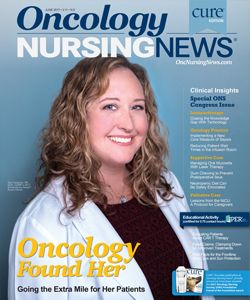Clamping Down on Unproven Cancer Treatment Products
The Internet provides easy access to companies marketing products that claim to prevent, diagnose, treat, or cure cancer. Healthcare practitioners and patients need to be vigilant.
Years ago, I administered chemotherapy to a young patient who was convinced that drinking milk from a cow that had just given birth would boost his immune system. It seemed logical to him, since antibody levels in this milky fluid, called colostrum, are in fact higher than those found in regular cow’s milk.
Thus, when the FDA issued warning letters on April 25, 2017, I was not surprised to see colostrum capsules on the list of 65 products that fraudulently claim to prevent, diagnose, treat, or cure cancer.1
It’s an interesting list, with several unproven (and potentially harmful) products falling into the vitamins and herbs category. Some have straightforward names, such as asparagus extract, garlic, and milk thistle. Others include scientific terms, presumably to make these products sound more legitimate (eg, liposomal curcumin, astragalus glycerite). A few have names that illustrate marketing to a vulnerable population at its best, such as the World’s Finest Vitamin C powder, Healthy Prostate & Ovary, and Super Liposomal Plus. There is also a "natural salve" on the list, labeled as a skin cancer treatment with the notation that it "gets the roots out."
These unproven products have been around for a long time, and people being treated for cancer learned about them primarily by word of mouth. Thanks to the Internet, these products became commercially available and were marketed and sold without FDA approval, most commonly on websites and social media platforms. It’s unknown just how many people purchased these unproven products, but it’s likely that enough did purchase them for these companies to stay in business and for additional companies to emerge.
Individuals seeking these products should of course consult with their healthcare providers prior to purchasing these unprovenproducts. However, I suspect that few do. It’s likely that some people being treated for cancer may believe that these products cannot be harmful, since they have names that often include words such as natural and organic. Thinking that "it can’t hurt" and may even help is an understandable thought process that people with cancer may have.
It is a violation of the Federal Food, Drug, and Cosmetic Act to market and sell products that claim to prevent, diagnose, treat, mitigate, or cure diseases without first demonstrating to the FDA that they are safe and effective for their labeled uses. I’m hoping that the FDA follows through to ensure that the companies that were sent warning letters stop producing, marketing, and selling these products. However, as the FDA notes, companies marketing fraudulent products, primarily or exclusively online, attempt to subvert compliance and enforcement efforts by changing the names of their products, their companies, and/or their websites frequently.
So what happens next? Each of the companies on the FDA’s list has 15 working days from the date the letters were issued to respond with a compliance plan. The FDA has authority to take further action, including criminal prosecutions, product seizures, and injunctions. Companies that fail to come into compliance after receiving a warning letter can face criminal prosecution and court-ordered decrees that require them to recall products and get written permission from FDA before resuming operations. The violations identified in the warning letters, if not corrected, are punishable by up to 1 year in federal prison, 5 years’ probation, and a fine of either $100,000 or twice the gain from the offense.
The take-home message for healthcare providers is to ask about use of vitamins, herbs, and topical products when conducting new patient assessments and medication reconciliation. Although the FDA has requested media exposure regarding its list, healthcare providers on the frontline of care also can publicize the list by posting or distributing information about the 65 products deemed by the FDA to be unproven — and potentially harmful — cancer treatments.
US Food and Drug Administration (FDA). Illegally Sold Cancer Treatments. www.fda.gov/ForConsumers/ProtectYourself/HealthFraud/ucm533465.htm. Updated April 25, 2017. Accessed May 12, 2017.

Innovative Program Reduces Nurse Turnover and Fosters Development
Published: September 12th 2024 | Updated: September 12th 2024The US Oncology Network (The Network) has developed one of the most comprehensive programs in the nation to support the professional development and retention of new oncology nurses.


